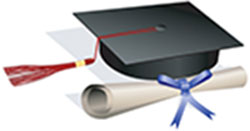
The following is a list of Signal Processing Society's distinguished industry speakers.
2026 Distinguished Industry Speakers
Pin-Yu Chen
 Pin-Yu Chen (F) is a principal research scientist at IBM Thomas J. Watson Research Center, Yorktown Heights, New York, USA. He is also the chief scientist of RPI-IBM AI Research Collaboration and PI of ongoing MIT-IBM Watson AI Lab projects. Dr. Chen received his Ph.D. in electrical engineering and computer science from the University of Michigan, Ann Arbor, USA, in 2016.
Pin-Yu Chen (F) is a principal research scientist at IBM Thomas J. Watson Research Center, Yorktown Heights, New York, USA. He is also the chief scientist of RPI-IBM AI Research Collaboration and PI of ongoing MIT-IBM Watson AI Lab projects. Dr. Chen received his Ph.D. in electrical engineering and computer science from the University of Michigan, Ann Arbor, USA, in 2016.
Dr. Chen received the International Joint Conferences on Artificial Intelligence (IJCAI) Computers and Thought Award in 2023. At IBM Research, he received several research accomplishment awards, including IBM Master Inventor, IBM Corporate Technical Award, and IBM Pat Goldberg Memorial Best Paper.
Dr Chen is an IEEE Fellow; Editorial Board Member, Transactions on Machine Learning Research (since 2022); Member, IEEE Transactions on Signal Processing (since 2024). He is also Area Chair or Senior Program Committee Member for many conferences, and a Distinguished Lecturer of ACM. He received the IEEE Global Communications Conference (GLOBECOM) 2010 GOLD Best Paper Award and the Annual Conference on Uncertainty in Artificial Intelligence (UAI); Best Paper Runner-Up Award (2022); and the IEEE Signal Processing Society Industry Young Professional Leadership Award (2025).
Dr. Chen’s recent research focuses on AI safety and robustness. His long-term research vision is to build trustworthy machine learning systems. His research contributes to IBM open-source libraries including Adversarial Robustness Toolbox (ART 360), AI Explainability 360 (AIX 360), and In-context Explainability 360 (ICX 360).
Lecture Topics
- Computational Safety for Generative AI
Jianquan Liu
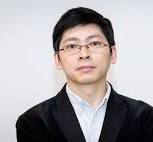 Jianquan Liu (SM) is currently a Director and Senior Principal Researcher at the Visual Intelligence Research Laboratories of NEC Corporation, working on the topics of multimedia data processing. He is also a Visiting Professor at Nagoya University and an Adjunct Professor at Hosei University, Japan. Prior to NEC, he worked as a development engineer at Tencent Inc. from 2005 to 2006 and was a visiting researcher at the Chinese University of Hong Kong in 2010. Dr. Liu received the M.E. and Ph.D. degrees from the University of Tsukuba, Japan.
Jianquan Liu (SM) is currently a Director and Senior Principal Researcher at the Visual Intelligence Research Laboratories of NEC Corporation, working on the topics of multimedia data processing. He is also a Visiting Professor at Nagoya University and an Adjunct Professor at Hosei University, Japan. Prior to NEC, he worked as a development engineer at Tencent Inc. from 2005 to 2006 and was a visiting researcher at the Chinese University of Hong Kong in 2010. Dr. Liu received the M.E. and Ph.D. degrees from the University of Tsukuba, Japan.
Dr. Liu received the DBSJ Young Researcher’s Achievement and Contribution Award (2024), the IEICE Achievement Award 2023), the Niwa & Takayanagi Achievement Award (ITE) (2023), the 69th Electrical Science and Engineering Promotion Award, and the Minister of Education, Culture, Sports, Science and Technology (MEXT) Award (2021), the KANTO Invention and Innovation Award (JIII) (2021), the IPSJ Research and Engineering Award (2020), and the IPSJ Industrial Achievement Award (2018).
Dr. Liu is/was serving as Member-at-Large of IEEE SPS Industry Board (2025-2026); Industry Co-Chair, IEEE International Conference on Image Processing (ICIP) 2023, 2025 and ACM MM 2023, 2024, 2025; the General Co-chair of IEEE MIPR 2021; the PC Co-chair of IEEE IRI 2022, ICME 2020, AIVR 2019, BigMM 2019, ISM 2018, ICSC 2018, ISM 2017, ICSC 2017, IRC 2017, and BigMM 2016; the Workshop Co-chair of IEEE AKIE 2018 and ICSC 2016; the Demo Co-chair of IEEE MIPR 2019 and MIPR 2018. He is a senior member of IEEE, ACM and IPSJ, and a member of IEICE, APSIPA and DBSJ, a member of expert committee for IEICE Mathematical Systems Science and its Applications (2017-), and IEICE Data Engineering (2015-2021), and Associate Editor, IEEE Transactions on Multimedia (2021-2024), ACM TOMM (2022-), EURASIP JIVP (2023-), IEEE MultiMedia Magazine (2019-2022), ITE Transaction on Media Technology and Applications (2021-), APSIPA Transactions on Signal and Information Processing (2022-), and the Journal of Information Processing (2017-2021).
Lecture Topics
- Multimedia Data Processing
- Multimodal Generative AI
- Human Behavior Sensing and Understanding
- Multimedia and Computer Vision Related Topics Including Video Retrieval, Video Summarization, Action Recognition, Object Tracking, Human and Object Interaction, Scene Recognition, Behavioral Pattern Analysis, Etc.
- Database and Data Mining Related Topics Including Multimedia Database, High-Dimensional Similarity Search, Web Data Mining, Information Retrieval, Cloud Computing, Social Network Analysis, Etc.
Scott McCloskey
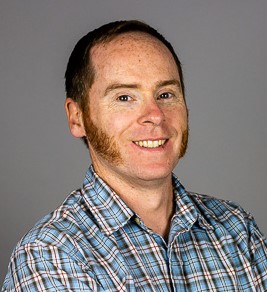 Scott McCloskey (SM) received his Ph.D. in Computer Science from McGill University in 2008, his M.S. in computer science from the Rochester Institute of Technology in 2002, and his B.S. in computer science and mathematics from the University of Wisconsin – Madison in 1998. Between his undergraduate and Ph.D., he completed the Image Science Career Development program at the Eastman Kodak research labs.
Scott McCloskey (SM) received his Ph.D. in Computer Science from McGill University in 2008, his M.S. in computer science from the Rochester Institute of Technology in 2002, and his B.S. in computer science and mathematics from the University of Wisconsin – Madison in 1998. Between his undergraduate and Ph.D., he completed the Image Science Career Development program at the Eastman Kodak research labs.
Dr. McCloskey is the Director of Computational Imaging at Kitware, where he leads a group of researchers and developers within the Computer Vision team to develop new capabilities involving non-traditional sensing. Prior to joining Kitware, he was a technical fellow at Honeywell, where he served as the principal investigator (PI) on a number of commercial and contract-funded projects in computer vision and computational imaging. His commercial work addressed problems in visual surveillance, biometrics, barcode scanning, and visual metrology.
Dr. McCloskey has served as General Chair, Program Chair, and Area Chair for the IEEE Winter Conference on the Applications of Computer Vision (WACV); as the Industrial Relations Chair, Corporate Relations Chair, and Area Chair for the premier computer vision conferences including the IEEE Conference on Computer Vision and Pattern Recognition (CVPR) and International Conference on Computer Vision (ICCV). He has served on a National Science Foundation review panel and as Associate Editor of the Pattern Recognition journal.
Dr. McCloskey was a Member of the Information Forensics and Security Technical Committee (2021-2023). He received the Best Paper Award for “Centroiding Point-Objects with Event Cameras” (2025), Best Paper Award for “High-resolution Image Enumeration for Low-resolution Face Recognition" (2024), and the Outstanding Reviewer Award (2024 and 2012).
Lecture Topics
- Event-Based Sensing for Space-Based Applications
- Using Computational Cameras to Recognize Moving Objects
- Self-Supervised X-Ray Computed Tomography from Photon-Starved Images
- Media Forensics in the Era of Deepfakes
Beibei Wang
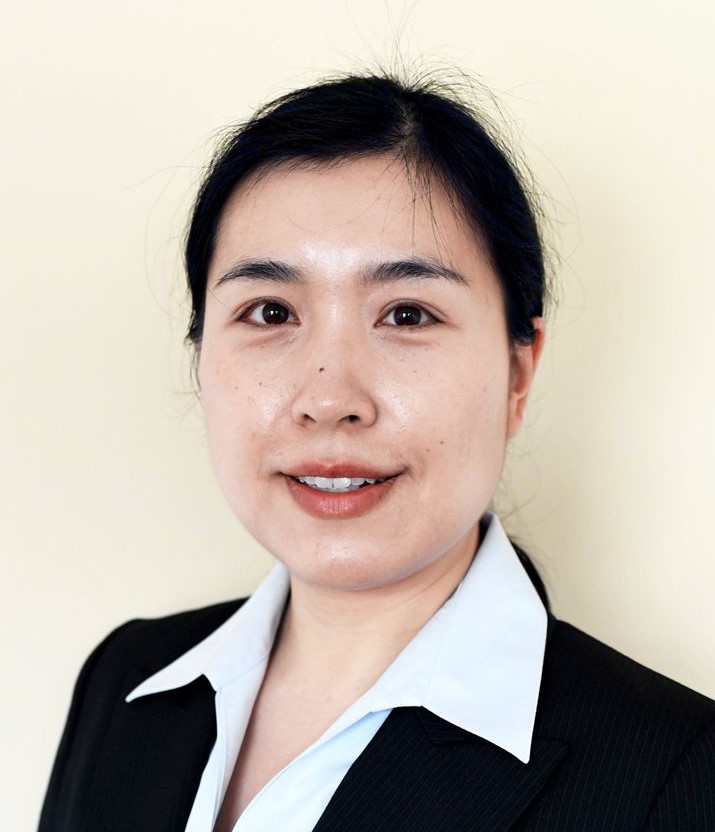
Beibei Wang (F) earned her B.S. in electrical engineering from the University of Science and Technology of China (1999-2004, highest honors), followed by M.S. and Ph.D. degrees from the University of Maryland, College Park (2008, 2009). After a postdoctoral fellowship at Maryland, she held R&D roles at Qualcomm (2010–2014), contributing to 3GPP wireless standards. Since 2015, she has served as Vice President of Research at Origin Wireless, leading innovations in wireless sensing.
Dr. Wang has been a Distinguished Lecturer for the IEEE Communications Society (2022–2023) and IEEE Sensors Council (2025–2027). She has served on the editorial board of IEEE Journal on Selected Areas in Communications, Cognitive Radio Series (2012-2014) and Machine Learning in Communications and Networks (2020-2022), IEEE Signal Processing Letters (2020-present), IEEE Internet of Things Journal (2020-present), IEEE Transactions on Mobile Computing (2024-present), and IEEE Journal of Selected Areas in Sensors (2025). She has been a Session Chair and Organizer at IEEE International Conference on Acoustics, Speech, and Signal Processing (ICASSP) Special Session 2021, an invited panelist at ACM Annual International Conference on Mobile Computing and Networking (MobiCom) 2020, and an invited speaker at IEEE/CVF Conference on Computer Vision and Pattern Recognition (CVPR) Workshop. She is the recipient of the IEEE Sensors Council Technical Achievement Award in Sensor Systems or Networks – Advanced Career (2025).
Dr. Wang is an IEEE Fellow. Her work bridges academic breakthroughs with scalable industry solutions, cementing Wi-Fi sensing as a transformative technology for healthcare, safety, and smart infrastructure. Her research drives commercialization of products like Belkin Linksys Aware (Consumer Electronics Show (CES 2020 Innovation Award), HEX Home (CES 2021 Innovation Award), Verizon Home Awareness, Signify’s SpaceSense, and Origin’s Health Remote Patient Monitoring (CES 2021 Best of Innovation).
Lecture Topics
- Wifi Can Do More: Towards Ubiquitous Wireless Sensing
- Wireless Indoor Positioning
- Mmwave/Radar-Based Sensing
Dong Yu
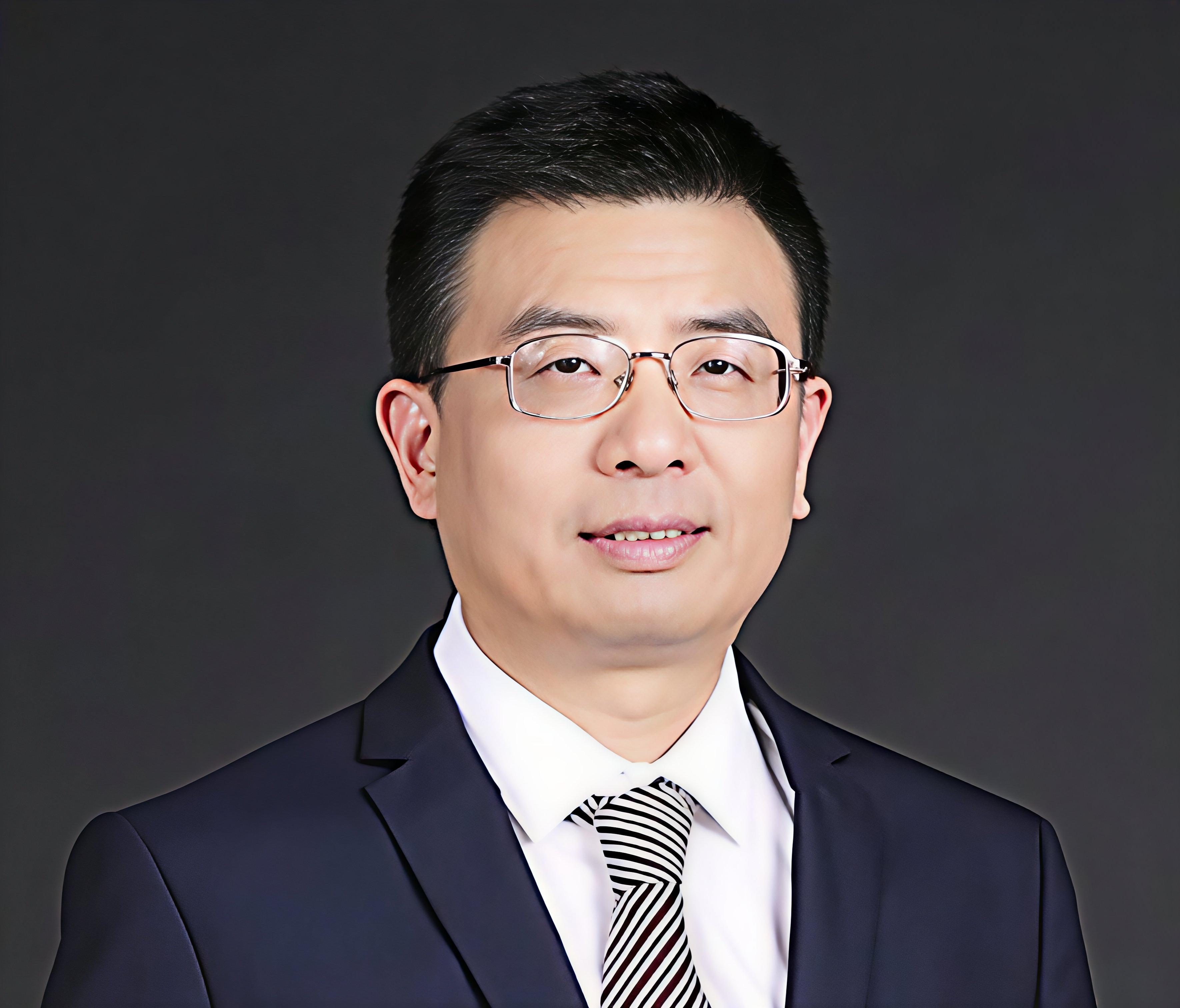
Dong Yu (F) holds a Ph.D. degree in computer science from the University of Idaho (2021-2006), an MS degree in computer science from Indiana University at Bloomington (1995-1996), an MS degree (with honor) in pattern recognition and intelligent control from the Chinese Academy of Sciences (1991-1994), and a BS degree (with honor) in electrical engineering from Zhejiang University (1987-1991). Currently, he is taking the role of Distinguished Scientist and Vice General Manager at Tencent AI Lab. Before joining Tencent America in 2017, he was a Principal Researcher at the Speech and Dialog Research Group, Microsoft Research (Redmond).
Dr. Yu was Chair, IEEE Speech and Language Processing Technical Committee (2021-2022); Member, IEEE SLPTC (2013-2018); Distinguished Industry Speaker of IEEE SPS (2026-2027), a Distinguished Speaker of ACM (2023-2026), a Distinguished Lecturer of APSIPA (2017-2018), Associate Editor ( 2011-2015) and Senior Area Editor (2025-2027) of the IEEE/ACM Transactions on Audio, Speech, and Language Processing; Associate Editor, IEEE Signal Processing Magazine (2008-2011), Associate Editor, ACM Transactions on Asian and Low Resource Language Information Processing (2017-2019), the Lead Guest Editor, IEEE TASLP - Special Issue on Deep Learning for Speech and Language Processing (2010-2011), Guest Editor, IEEE/CAA Journal Of Automatica Sinica - Special Issue on Deep Learning in Audio, Image, and Text Processing (2015-2016), Guest Editor, IEEE Transactions on AI - Special Issue on Conversational AI, Guest Editor, IEEE journal of Selected Topics in Signal Processing (JSTSP) Special Series on AI in Signal & Data Science: Toward Explainable, Reliable, & Sustainable Machine Learning (2024) and Large Language Model: Theory and Applications (2025), Technical Co-Chair of ICASSP 2021, 2027, and 2029, Member, Fellow Search Committee of the IEEE Computational Intelligence Society (2025).
Dr. Yu’s work has been recognized by the 2013, 2016, 2020, and 2022 IEEE/ACM Transactions on Audio, Speech, and Language Processing best paper awards, the 2021 North American Chapter of the Association for Computational Linguistics (NAACL) Best Long Paper Award, the 2022 IEEE Signal Processing Magazine Best Paper Award, the 2022 IEEE Signal Processing Magazine Best Column Award, and the Empirical Methods in Natural Language Processing (EMNLP) 2023 Outstanding Paper Award.
Dr. Yu is known for his pioneering contributions in speech recognition and deep learning. His research spans speech processing and recognition, multi-modal agentic systems, and natural language processing (including large language models), using deep learning techniques.
Lecture Topics
- The Road Toward AGI
- Conversational AI
- Speech and Audio Enhancement
2025 Distinguished Industry Speakers
Ioannis Katsavounidis
 Ioannis Katsavounidis (SM) studied Electrical Engineering at the Aristotle University of Thessaloniki, Greece, from 1986-1991, where he received a 5-year B.S. degree with double specialization in Electronics/Computer Engineering and Telecommunications. He continued his graduate studies in Electrical Engineering at the University of Southern California (USC), CA, USA, from 1991-1998, receiving M.S., EEE and Ph.D. degrees in 1992, 1997 and 1998 respectively. His work and research were focused on Signal Processing, as part of the Signal and Image Processing Institute (SIPI), with minor in Telecommunications and another minor program in Mathematics.
Ioannis Katsavounidis (SM) studied Electrical Engineering at the Aristotle University of Thessaloniki, Greece, from 1986-1991, where he received a 5-year B.S. degree with double specialization in Electronics/Computer Engineering and Telecommunications. He continued his graduate studies in Electrical Engineering at the University of Southern California (USC), CA, USA, from 1991-1998, receiving M.S., EEE and Ph.D. degrees in 1992, 1997 and 1998 respectively. His work and research were focused on Signal Processing, as part of the Signal and Image Processing Institute (SIPI), with minor in Telecommunications and another minor program in Mathematics.
Dr. Katsavounidis was part of Caltech’s High Energy Physics department research team at the Italian National Laboratory at Gran Sasso (Laboratori Nazionali del Gran Sasso – LNGS) (1996 to 2000); member, Italian network of research institutes in Nuclear Physics (Istituto Nazionale di Fisica Nucleare – INFN), working as engineer for the MACRO (Monopoles, Astrophysics and Cosmic Ray Observatory) large-scale high-energy physics experiment. He worked at InterVideo, a startup company based in Fremont, CA, USA (2000 to 2007); co-founder, CTO and Chief Scientist of Cidana, San Francisco Bay Area, CA, USA (2007 to 2008); Associate Professor, Department of Electrical and Computer Engineering at the University of Thessaly in Volos, Greece (2008 to 2015); Senior Research Scientist at Netflix in Los Gatos, CA, USA, (2015 to 2018). He is a Research Scientist at Meta Platforms in Menlo Park, CA, USA, (2018 till present) part of the Video Infrastructure team, supporting all video processing for the popular Facebook, Instagram and Messenger applications. He led the efforts from Video Infrastructure to design Meta’s Scalable Video Processor (MSVP), a custom ASIC that is used in Meta’s datacenters for all the back-end transcoding and quality measurement tasks. MSVP received in 2024 the 75th Technology and Engineering Emmy Award in the “Design and Deployment of Efficient Hardware Video Accelerators for Cloud” category.
Dr. Katsavounidis has been serving as co-chair of the Software Implementation Working Group (SIWG) at the Alliance for Open Media, as a co-chair of the No-Reference Quality Metrics (NORM) and Statistical Analysis Methods (SAM) groups at the Video Quality Experts Group. He holds two music degrees; a BA in music theory, awarded in 1990 by the Macedonian School of Music in Thessaloniki, Greece and a MA in classical piano performance, awarded in 1991 by the School of Music in Veria, Greece.
Dr. Katsavounidis is a Senior Member of IEEE; Member, IEEE Signal Processing (SPS) and IEEE Computers and Systems (CAS) societies. He is a member of SPIE and the Technical Chamber of Greece. He received the Distinguished Alumni award (senior industry category) at the 50th anniversary of the Signal and Image Processing Institute at the University of Southern California in 2022. He has organized and led industry workshops at ICIP conferences since 2019 and ICASSP conferences since 2023.
Lecture Topics
- Video Streaming Principals and Quality/Efficiency Optimization
- Full Reference Video Quality Metrics - A Review
- Video Transcoding - HW and SW Solutions
Jinyu Li
 Jinyu Li (F) received the B.E. and M.E. degrees in electrical engineering and information systems from University of Science and Technology of China, Hefei, China, in 1997 and 2000, respectively. He received the Ph.D. degree in electrical and computer engineering from Georgia Institute of Technology, Atlanta, GA, USA in 2008.
Jinyu Li (F) received the B.E. and M.E. degrees in electrical engineering and information systems from University of Science and Technology of China, Hefei, China, in 1997 and 2000, respectively. He received the Ph.D. degree in electrical and computer engineering from Georgia Institute of Technology, Atlanta, GA, USA in 2008.
Dr. Li currently serves as a Partner Applied Science Manager for Microsoft, Redmond, WA, USA since 2008 and leads a science team dedicated to designing and enhancing speech modeling algorithms and technologies. From 2000 to 2003, he was a Researcher in the Intel China Research Center and Research Manager in iFlytek, China.
Dr. Li has been a Member, IEEE Speech and Language Processing Technical Committee from 2018 to 2023; Associate Editor, IEEE/ACM Transactions on Audio, Speech and Language Processing from 2015 to 2020; Area Chair, IEEE International Conference on Acoustics, Speech and Signal Processing (ICASSP) from 2018 and 2023; Lead Technical Program Chair, IEEE Spoken Language Technology Workship (SLT) 2021 and IEEE Workshop of Automatic Speech Recognition and Understanding (ASRU) 2023. Dr. Li was awarded as the Industrial Distinguished Leader at Asia-Pacific Signal and Information Processing Association (APSIPA) in 2021 and APSIPA Sadaoki Furui Prize Paper Award in 2023.
Dr. Li’s research areas include end-to-end modeling for speech recognition, speech translation, and multimodal modeling.
Jinyu Li
Microsoft, USA
Lecture Topics
- End-to-End Automatic Speech Recognition: Advances and Next Trends
- Unlocking Multimodal Intelligence with Large Language Model
- Large-Scale Streaming End-to-End Speech Translation
Morteza Mardani
 Morteza Mardani (SM) is a lead scientist at NVIDIA Research, specializing in generative learning. He also serves as a visiting researcher in the Electrical Engineering Department at Stanford University. Dr. Mardani was a postdoctoral researcher and research associate at Stanford (June 2015 to January 2020) and he was a visiting scholar at UC Berkeley's RISE Lab (January 2015 to June 2015). He earned his Ph.D. in Electrical Engineering from the University of Minnesota (September 2009 – May 2015).
Morteza Mardani (SM) is a lead scientist at NVIDIA Research, specializing in generative learning. He also serves as a visiting researcher in the Electrical Engineering Department at Stanford University. Dr. Mardani was a postdoctoral researcher and research associate at Stanford (June 2015 to January 2020) and he was a visiting scholar at UC Berkeley's RISE Lab (January 2015 to June 2015). He earned his Ph.D. in Electrical Engineering from the University of Minnesota (September 2009 – May 2015).
Dr. Mardani's work has been recognized with several awards, including the IEEE Signal Processing Society's Young Author Best Paper Award in 2017 and the Best Student Paper Award at IEEE Signal Processing Advances in Wireless Communications (SPAWC) in 2012. Dr. Mardani is a Senior Member of IEEE; Member, IEEE Signal Processing Society; and Member, IEEE Signal Processing Society’s Computational Imaging Technical Committee (2023-2024).
Dr. Mardani's expertise lies in statistical learning, particularly in the area of generative AI.
Morteza Mardani
San Jose, CA, USA
Lecture Topics
- Introduction to Diffusion Models: Signal Processing Perspective
- Diffusion Models for Inverse Problems
Tomohiro Nakatani
 Tomohiro Nakatani (F) received his B.E., M.E., and Ph.D. degrees from Kyoto University, Kyoto, Japan, in 1989, 1991, and 2002, respectively. He is currently a Senior Distinguished Researcher at Communication Science Laboratories, NTT Corporation, Japan. In 2005, he was a Visiting Scholar at the Georgia Institute of Technology, USA, and from 2008 to 2017, he served as a Visiting Associate Professor in the Department of Media Science at Nagoya University, Japan. Since joining NTT Corporation as a Researcher in 1991, he has focused on developing audio signal processing technologies for intelligent human-machine interfaces, including dereverberation, denoising, source separation, and robust automatic speech recognition (ASR).
Tomohiro Nakatani (F) received his B.E., M.E., and Ph.D. degrees from Kyoto University, Kyoto, Japan, in 1989, 1991, and 2002, respectively. He is currently a Senior Distinguished Researcher at Communication Science Laboratories, NTT Corporation, Japan. In 2005, he was a Visiting Scholar at the Georgia Institute of Technology, USA, and from 2008 to 2017, he served as a Visiting Associate Professor in the Department of Media Science at Nagoya University, Japan. Since joining NTT Corporation as a Researcher in 1991, he has focused on developing audio signal processing technologies for intelligent human-machine interfaces, including dereverberation, denoising, source separation, and robust automatic speech recognition (ASR).
Dr. Nakatani served as Associate Editor, IEEE Transactions on Audio, Speech, and Language Processing (2008 to 2010); Member, IEEE SPS Audio and Acoustics Technical Committee (2009 to 2014); Member, IEEE SPS Speech and Language Processing Technical Committee (2016 to 2021); and Member, IEEE SPS Fellow Evaluation Committee (2024). He Co-Chaired the 2014 REVERB Challenge Workshop and was a General Co-Chair of the IEEE Automatic Speech Recognition and Understanding Workshop (ASRU) (2017).
Dr. Nakatani’s accolades include the 2005 IEICE Best Paper Award, the 2009 ASJ Technical Development Award, the 2012 Japan Audio Society Award, an Honorable Mention for the 2015 IEEE ASRU Best Paper Award, the 2017 Maejima Hisoka Award, and the 2018 IWAENC Best Paper Award.
Lecture Topics
- Speech Dereverberation: Theory, Algorithms, and Applications
- Convolutional Beamforming for Joint Denoising, Dereverberation, and Source Separation
- Boosting Distant Automatic Speech Recognition Using Multiple Microphone Frontend
- High-Quality Speech Enhancement Integrating Neural Networks and Model-Based Signal Processing
Justin Picard
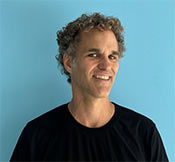
Dr. Justin Picard (SM) attended Polytechnique Montréal, where he received his B.S. degree in physics engineering (1990-1994), and his MSc in electronics engineering (1994-1997). He received a PhD in computer science from the University of Neuchâtel (1996-2000), before attending the École Polytechnique Fédérale de Lausanne (EPFL) for postdoctoral research in digital watermarking (2000-2001).
Dr. Picard was a research and development engineer at Mediasec Technologies in Rhode Island (2001-2004), the head of research and development at Thomson Technicolor in Germany (2004-2006), and later the chief scientist at Advanced Track & Trace in France (2006-2013). In 2014, he co-founded Scantrust in Switzerland, after filing a patent on a QR Code, which secures against counterfeit attempts. He was Chief Executive Officer of the company until 2017, then took the role of Chief Technology Officer.
Dr. Picard is a member of the Organisation for Economic Co-operation and Development Task Force on Countering Illicit Trade (2012-) and a member of the network of experts at the Global Initiative Against Transnational Organized Crime (2016-). He was selected as World Economic Forum Technology (WEF) Pioneer (2009), and served as member of the WEF Global Agenda Council on Illicit Trade (2009-2014). He is a member of the GS1 Digital Link technical committee and an advisor to the European Union Intellectual Property Organization (EUIPO) on anti-counterfeiting technologies. He is also co-founder of the non-governmental organization Black Market Watch, where he developed a methodology to assess the impacts of illicit trade.
Dr. Picard was co-organizer of the special session on “Forensics and Security of Physical Objects” at the 2021 IEEE Workshop on Information Forensics and Security (WIFS). He is a reviewer for WIFS and is on the program committee of the ACM Symposium on document engineering.
Lecture Topics
- Signal Processing Techniques for Authentication and Security of Physical Objects
- Image Processing Techniques for Product Authentication with Smartphones
- Counterfeit Detection Using Machine Learning and Deep Learning
2024 Distinguished Industry Speakers
Michiel Bacchiani
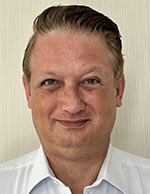 Michiel Bacchiani (F) currently manages a research group in Google Tokyo focused on jointly modeling speech and natural language understanding. Previously, he managed the acoustic modeling team responsible for developing novel algorithms and training infrastructure for all speech recognition applications backing Google services. Before joining Google, Dr. Bacchiani worked as a member of technical staff at IBM Research (2004-2005), as a technical staff member at AT&T Labs Research (1999-2004) and as a research associate and visiting researcher at Advanced Telecommunications Research labs in Kyoto, Japan.
Michiel Bacchiani (F) currently manages a research group in Google Tokyo focused on jointly modeling speech and natural language understanding. Previously, he managed the acoustic modeling team responsible for developing novel algorithms and training infrastructure for all speech recognition applications backing Google services. Before joining Google, Dr. Bacchiani worked as a member of technical staff at IBM Research (2004-2005), as a technical staff member at AT&T Labs Research (1999-2004) and as a research associate and visiting researcher at Advanced Telecommunications Research labs in Kyoto, Japan.
Dr. Bacchiani served as Chair, IEEE Spoken Language Technical Committee (2017-2018); elected member, IEEE Spoken Language Technical Committee (2003-2006 and 2013-2016); area chair, International Conference on Acoustics, Speech and Signal Processing (ICASSP) in 2005, 2007 and 2015. He is a Senior Area Editor for the IEEE/ACM Transactions on Audio, Speech, and Language and a subject editor and board member of the Speech Communication journal. He has served as an organizing committee member for ASR 2015 and ASRU 2017.
Michiel Bacchiani
SHIBUYA STREAM
Shibuya-ku, Tokyo, Japan
E: michiel@google.com
Lecture Topics
- Japanese Spelling Inconsistency
- Neural Vocoding and Speech Enhancement
- Research Projects at the Google Tokyo Office
Farhan Baqai
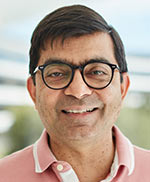 Farhan Baqai (F) earned a B.S. degree in Electrical Engineering from the University of Engineering and Technology, Lahore, Pakistan, a Master of Engineering Science degree from the University of Melbourne, Australia, and M.S. and Ph.D. degrees in Electrical Engineering from Purdue University, USA. He worked on half-toning algorithms for inkJet printers at Xerox Corporation in Rochester, NY, USA and on digital camera signal processing at Sony US Research Center in San Jose, CA. Currently, he is a Senior Research Manager at Apple Inc. where he leads the development of state-of-the-art algorithms for digital photography.
Farhan Baqai (F) earned a B.S. degree in Electrical Engineering from the University of Engineering and Technology, Lahore, Pakistan, a Master of Engineering Science degree from the University of Melbourne, Australia, and M.S. and Ph.D. degrees in Electrical Engineering from Purdue University, USA. He worked on half-toning algorithms for inkJet printers at Xerox Corporation in Rochester, NY, USA and on digital camera signal processing at Sony US Research Center in San Jose, CA. Currently, he is a Senior Research Manager at Apple Inc. where he leads the development of state-of-the-art algorithms for digital photography.
Dr. Baqai’s research and product contributions span digital camera image processing, machine learning, computer vision, stereoscopic image processing, statistical signal processing, digital printing, and radar imaging. His innovations have shipped in more than a billion devices which capture trillions of images and videos every year. Dr. Baqai setup, contributed to, and led successful multi-year research collaborations between Sony and Harvard University in Cambridge, MA, USA, and the University of Dayton in Ohio, USA.
Dr. Baqai’s image noise modeling, propagation, and reduction technologies have been incorporated in Sony BIONZ image signal processors shipping in CyberShot and Alpha camera product lines. At Apple, Dr. Baqai and this team pioneered noise reduction, image fusion, resolution transfer, chromatic aberration correction, adaptive bracketing, and registration methodologies that have been shipping in iPhone cameras since 2014. He led the research and cross-functional development effort that resulted in Night mode in iPhone cameras. Night mode provides dramatic improvements to lowlight imaging and has made Apple a world leader in mobile lowlight photography.
Dr. Baqai is an IEEE Fellow (2023), a Deputy Editor in Chief (2023-present) and a past Senior Area Editor (2018-2022) and Associate Editor (2010-2014) of IEEE Transactions on Image Processing. He sits on the IEEE Signal Processing Society (SPS) Image, Video, and Multidimensional Signal Processing Technical Committee (2020-present). He served as a Member of IEEE SPS Industry DSP Technology Standing Committee (2007-2014) and was Publicity Co-Chair of 2012 IEEE Conference on Image Processing. In 2020, Purdue University School of Electrical and Computer Engineering conferred on him the Outstanding Electrical and Computer Engineer (OECE) award.
Farhan Baqai
Fremont, CA, USA
E: fbaqai@gmail.com
Lecture Topics
- Research in Academia and Industry from the Lens of Digital Camera
- Image Processing — A Personal Odyssey
- Digital Camera Signal Processing — History, Recent Advances, Challenges, and Opportunities
Nada Golmie
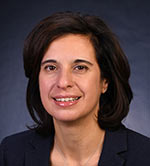 Nada Golmie (F) received her Ph.D. in computer science from the University of Maryland at College Park in 2002, and her B.S. and M.S. degrees in Computer Engineering from Toledo University in 1992 and Syracuse University in 1993 respectively. Since 1993, she has been a research engineer at the National Institute of Standards and Technology (NIST). From 2014 until 2022, she served as the chief for Wireless Networks Division at NIST. She is a NIST Fellow in the Communications Technology Laboratory. Her research in media access control and protocols for wireless networks led to over 200 technical papers presented at professional conferences, journals, and contributed to international standard organizations and industry led consortia. She is the author of “Coexistence in Wireless Networks: Challenges and System-level Solutions in the Unlicensed Bands," published by Cambridge University Press (2006). She leads several projects related to the modeling and evaluation of future generation wireless systems and protocols and serves as the chair of the NextG Channel Model Alliance.
Nada Golmie (F) received her Ph.D. in computer science from the University of Maryland at College Park in 2002, and her B.S. and M.S. degrees in Computer Engineering from Toledo University in 1992 and Syracuse University in 1993 respectively. Since 1993, she has been a research engineer at the National Institute of Standards and Technology (NIST). From 2014 until 2022, she served as the chief for Wireless Networks Division at NIST. She is a NIST Fellow in the Communications Technology Laboratory. Her research in media access control and protocols for wireless networks led to over 200 technical papers presented at professional conferences, journals, and contributed to international standard organizations and industry led consortia. She is the author of “Coexistence in Wireless Networks: Challenges and System-level Solutions in the Unlicensed Bands," published by Cambridge University Press (2006). She leads several projects related to the modeling and evaluation of future generation wireless systems and protocols and serves as the chair of the NextG Channel Model Alliance.
Dr. Nada is a Fellow of IEEE and member, IEEE Communications and IEEE Signal Processing societies. She has served as Director, IEEE Communications Society Standardization Program Development Board (2018-2019, 2022-2023); member, IEEE Technical Activities Boards on Standards (2020-present), IEEE Communications Society Awards Committee (2022-2024), Communications Society Nominations and Elections Committee (2020-2022), Communications Society Fellow Evaluation Committee (2024-2025). She is an associate editor, IEEE Transactions on Cognitive Communications and Networking (2023-2025); associate editor, IEEE Journal on Select Areas in Communications (2011-2015). She received the U.S. Department of Commerce Gold medal in 2011 and Bronze medal in 2023 and the NIST Slitcher Award in 2019.
Dr. Nada’s research interest includes the performance evaluation of wireless communications systems and protocols, propagation measurement and modeling, next generation wireless, and millimeter-wave communication systems.
Nada Golmie
National Institute of Standards and Technology
Gaithersburg, MD, USA
E: nada.golmie@nist.gov
Lecture Topics
- Joint communications and sensing
- RF propagation measurement and modeling
- Measurement data for modeling of wireless systems and protocols
John Treichler
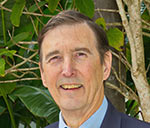 John Treichler (F) received his BA and MEE degrees from Rice University, Houston, TX in 1970 and his PhDEE from Stanford in 1977. He served as a line officer aboard destroyers in the US Navy from 1970 to 1974. In 1977 he joined ARGOSystems in Sunnyvale CA and then helped found Applied Signal Technology, Inc. in 1984 after serving for a year as an Associate Professor of Electrical Engineering at Cornell University. Applied Signal Technology, now a business unit of Raytheon Technologies, Inc, designs and builds advanced signal processing equipment. For three years he was the president of the business unit and continues to serve as its Chief Technical Officer.
John Treichler (F) received his BA and MEE degrees from Rice University, Houston, TX in 1970 and his PhDEE from Stanford in 1977. He served as a line officer aboard destroyers in the US Navy from 1970 to 1974. In 1977 he joined ARGOSystems in Sunnyvale CA and then helped found Applied Signal Technology, Inc. in 1984 after serving for a year as an Associate Professor of Electrical Engineering at Cornell University. Applied Signal Technology, now a business unit of Raytheon Technologies, Inc, designs and builds advanced signal processing equipment. For three years he was the president of the business unit and continues to serve as its Chief Technical Officer.
Dr. Treichler was elected a Fellow of the Institute of Electrical and Electronics Engineers (IEEE) in 1991. He was awarded the IEEE Signal Processing Society’s Technical Achievement Award in 2000 and its first Industrial Leader Award in 2016. He is the Past President of the IEEE Foundation, and in 2016 he was elected a member of the National Academy of Engineering. In 2019 he received the IEEE Signal Processing Society’s Norbert Wiener Society Award.
John Treichler
E: jrt@treichler.net
Lecture Topics
- Four or More Ways to Go Out of Business – All Performed by the Same Company
- The Worst Day of my Professional Engineering Life or How I Learned to Love Multipath Propagation
- The Effect of Entropy on the Choice of a Technical Career or Four Stories
Kush R. Varshney
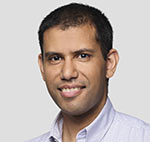 Kush R. Varshney (SM) received the B.S. degree (magna cum laude) in electrical and computer engineering with honors from Cornell University, Ithaca, New York, in 2004. He received the S.M. degree in 2006 and the Ph.D. degree in 2010, both in electrical engineering and computer science at the Massachusetts Institute of Technology (MIT), Cambridge. While at MIT, he was a National Science Foundation Graduate Research Fellow.
Kush R. Varshney (SM) received the B.S. degree (magna cum laude) in electrical and computer engineering with honors from Cornell University, Ithaca, New York, in 2004. He received the S.M. degree in 2006 and the Ph.D. degree in 2010, both in electrical engineering and computer science at the Massachusetts Institute of Technology (MIT), Cambridge. While at MIT, he was a National Science Foundation Graduate Research Fellow.
Dr. Varshney is a distinguished research scientist and senior manager with IBM Research at the Thomas J. Watson Research Center, Yorktown Heights, NY, where he leads the Trustworthy Machine Intelligence department. He was a visiting scientist at IBM Research - Africa, Nairobi, Kenya in 2019. He is the founding co-director of the IBM Science for Social Good initiative. He and his team created several well-known open-source toolkits, including AI Fairness 360, AI Explainability 360, Uncertainty Quantification 360, and AI FactSheets 360. AI Fairness 360 has been recognized by the Harvard Kennedy School's Belfer Center as a tech spotlight runner-up and by the Falling Walls Science Symposium as a winning science and innovation management breakthrough.
Dr. Varshney conducts academic research on the theory and methods of trustworthy machine learning. His work has been recognized through paper awards at the Fusion 2009, SOLI 2013, KDD 2014, and SDM 2015 conferences and the 2019 Computing Community Consortium / Schmidt Futures Computer Science for Social Good White Paper Competition.
Kush R. Varshney
Yorktown Heights, NY, USA
E: krvarshn@us.ibm.com
Lecture Topics
- Safe and Trustworthy Foundation Models
- A Carative Approach to AI Governance
- Trustworthy Machine Learning
